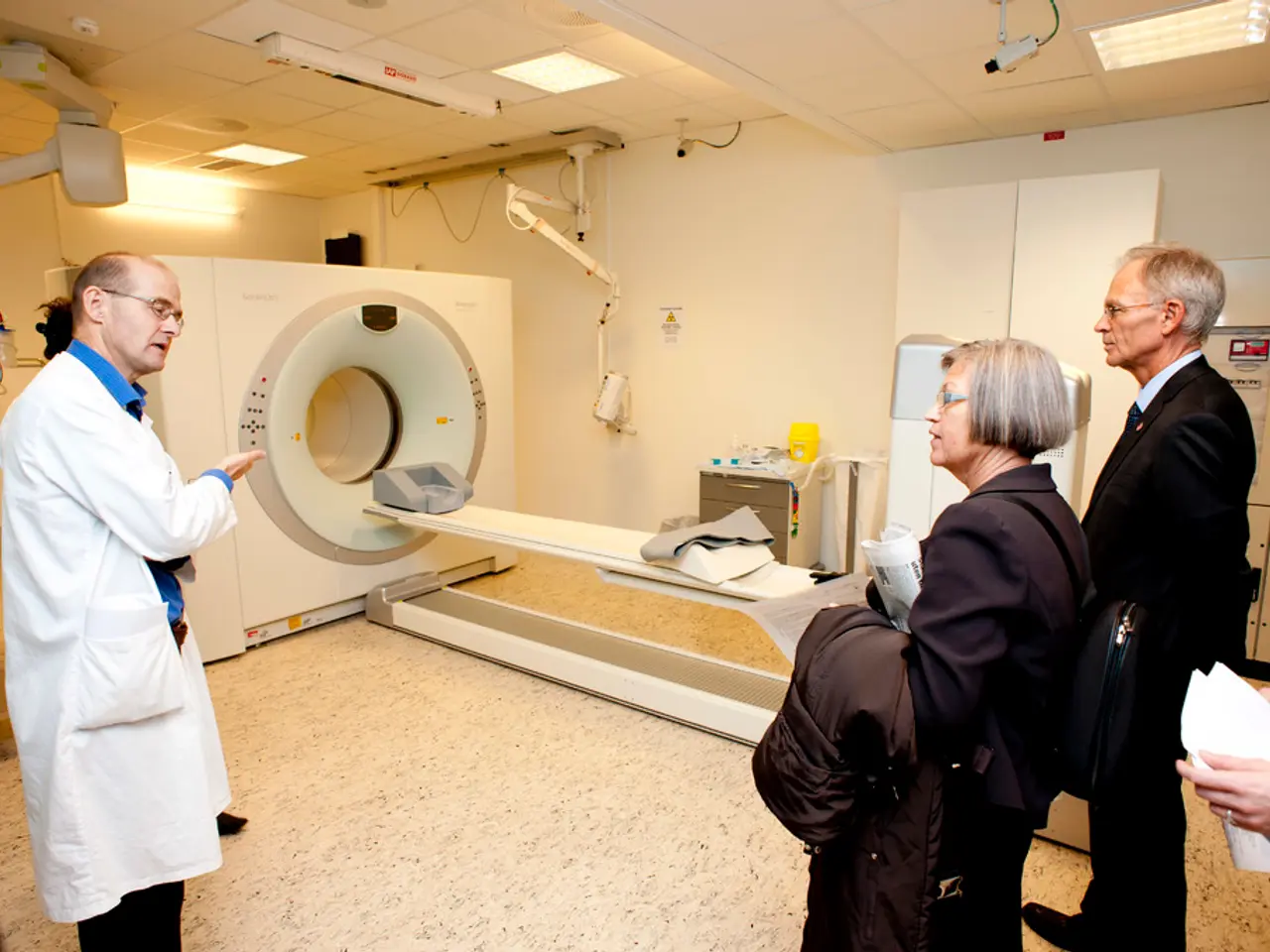"Exploring Federated Learning in the Healthcare Sector: Applications and Advantages"
Federated learning, a privacy-preserving AI technique, is making waves in the healthcare industry. This innovative approach allows multiple healthcare institutions to collaborate on model development without sharing sensitive patient data.
Privacy and Compliance at the Forefront
Federated learning inherently prioritizes patient privacy, minimizing data movement and simplifying compliance with stringent data protection laws such as HIPAA, GDPR, and other privacy regulations. This respect for data sovereignty builds trust between participating parties.
Enhanced Healthcare AI Capabilities
In the healthcare sector, federated learning has proven effective in various tasks, including disease risk prediction, clinical diagnosis, medical image recognition, and predictive analytics for early intervention. By leveraging diverse datasets from multiple institutions, federated learning enhances model performance.
Emerging Advanced Frameworks
Researchers are integrating federated learning with cutting-edge technologies like quantum computing to optimize the training process under distributed healthcare settings. This integration promises improved performance and efficiency while further safeguarding privacy.
Practical Industry Adoption
Major healthcare and life sciences organizations are adopting federated learning for sensitive applications such as AI-driven drug discovery and protein modeling. Platforms like Apheris Gateway on AWS enable multi-institution training of models on proprietary biomedical data without compromising data privacy or intellectual property.
Overcoming Challenges
Although promising, federated learning faces unique challenges, including managing data heterogeneity, communication overhead, and balancing model accuracy with privacy preservation. Ongoing research aims to develop personalized federated learning approaches and efficient client selection strategies to address these challenges.
Early Adopters See Positive Results
Early adopters of federated learning in healthcare, such as MELLODDY's partners, are already seeing positive results. Waiting means falling behind in a growing market.
Case Studies
- Saving Costs: Federated learning avoids the $10 million price tag of centralized databases, making it a cost-effective solution for healthcare organizations.
- Pediatric Disease Research: A global network of children's hospitals used federated learning to study rare pediatric diseases. By combining insights from small, scattered datasets, they built tools to predict disease progression, improving diagnosis for conditions with limited data.
- Cancer Detection: Over 30 medical centers used federated learning to train AI tools for better tumor detection in brain, breast, and liver cancers. The accuracy matched that of centralized systems while keeping patient data private.
- Personalized Treatments: With healthcare organizations shifting to value-based care, federated learning helps deliver personalized treatments that improve outcomes.
- Personalized Cancer Care: Four French hospitals used federated learning to predict how breast cancer and melanoma patients would respond to treatments, helping improve outcomes for patients.
- Heart Risk Prediction: 5 U.S. hospitals trained an AI tool on their patient records to predict heart attack risks. The shared tool was more accurate than single-hospital models, helping doctors act sooner and save lives.
- Brain Tumor Detection: Multiple research centers trained an AI tool to spot brain tumors in MRI scans using federated learning. The final tool matched the quality of one built on pooled data, helping doctors catch tumors earlier.
- Tackling Rare Cancers: 15 European labs used federated learning to study genomic data for rare cancers, finding new biomarkers 25% faster and speeding up clinical trial planning.
In conclusion, federated learning is actively advancing as a powerful method for joint AI model development that upholds data privacy and regulatory compliance. It leverages the distributed nature of healthcare data to create more robust AI solutions while respecting privacy constraints, with increasing adoption in both research and industry settings, including integration with novel computing paradigms like quantum machine learning.
Machine learning technologies, such as federated learning, have found a significant place in the digital health sector, particularly in healthcare software applications. This approach, which prioritizes privacy and simplifies compliance with regulations like HIPAA, GDPR, is being used for tasks ranging from disease risk prediction to medical image recognition.
The healthcare industry is also exploring the integration of federated learning with advanced technologies, like artificial-intelligence and quantum computing, to further optimize the training process in distributed healthcare settings.
With major healthcare organizations adopting federated learning for sensitive applications like AI-driven drug discovery, it is clear that this technology is becoming increasingly relevant in the digital health landscape.




